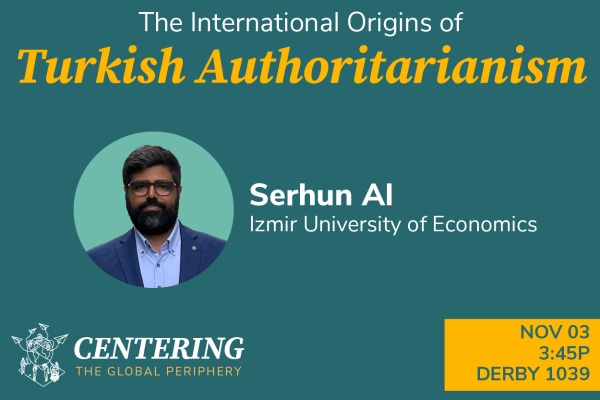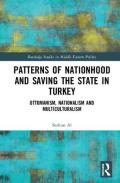
This talk is part of the Centering the Global Periphery research cluster and co-sponsored with the Middle East Studies Center.
Over the twenty-year rule of the Justice and Development Party in the leadership of Recep Tayyip Erdogan, Turkey has gradually shifted from a promising democratic candidate of the European Union and a long-time reliable member of NATO into a significantly unpredictable and autonomous autocratic regime with a neo-imperial bid in world politics. A traditionally defensive-pragmatic Turkish foreign policy turned into an offensive-interventionist military activism across Iraq, Syria, Libya, and Azerbaijan along with a newly self-assured hubris based on a glorious Ottoman imperial nostalgia. How and under what conditions did such drastic change unfold in contemporary Turkey? Although the dynamics of domestic politics definitely played a role in this transition, exclusively inside-out arguments may be reductionist. For a broader and structural understanding, one also needs to take the international context into account. Particularly, the decline of liberal international order, the rise of global illiberalism and the emergence of new multipolarity in world politics pushed Turkey to readjust its global standing and paved the way for a more autocratic rule inside based on a survival and threat psyche along with a significant investment in Turkish military-industrial complex.
Speaker

Serhun Al received his PhD in political science from the University of Utah in 2015. He is currently a visiting scholar at the Ohio State University and a faculty member in the Department of Political Science and International Relations at Izmir University of Economics, Turkey. His research interests include politics of identity, nationalism and ethnic conflict, and security studies within the context of modern Turkey and the Kurdish Middle East. He is the author of Patterns of Nationhood and Saving the State in Turkey (Routledge, 2019) and the co-editor of Comparative Kurdish Politics in the Middle East (Palgrave, 2018). His articles have been published in journals such as Ethnopolitics, Studies in Ethnicity and Nationalism, Nationalities Papers, Globalizations, Journal of International Relations and Development and Southeast European and Black Sea Studies.
Patterns of Nationhood and Saving the State in Turkey

Tackles a theoretical puzzle in understanding the state policy changes toward minorities and nationhood, first by placing the state in the historical context of the international system and second by unpacking the state through analysis of intra-elite competition in relation to the counter-discourses by minority groups within the context of the Ottoman Empire and Turkey. You can purchase it here.
The book is primarily an important contribution to studies in ethnicity and nationalism. It is also an essential resource for students and scholars interested in Comparative Politics, Middle East Studies, the Ottoman Empire, and Turkey.
